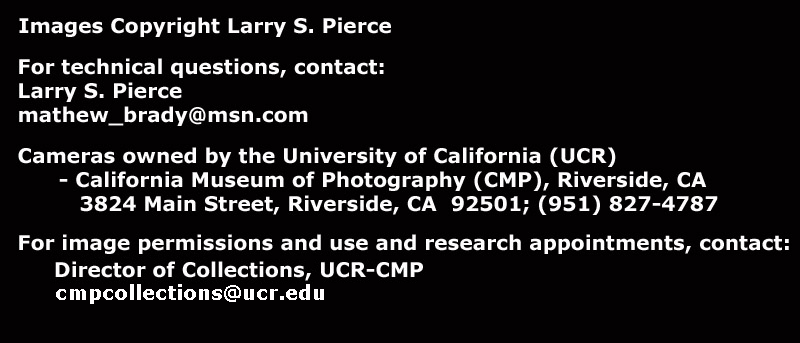Schultze Photo Equipment Co., New York, NY
Anthony Champion Variation 1B (made by E.&H.T. Anthony)
Schultze Photo Equipment Co., c.
1890, p. 4
4½ x 6½" Label on
front standard Patent stamps
on rear base rail: Date Introduced: - ;
Years Manufactured: c. 1887-1892 This New York City
company advertised Scovill cameras in its catalogs, but also produced
(or had made for it) at least two cameras its own
unique design, and in a number of cases, placed their label on products
of E.&H.T. Anthony & Co. Their earliest
advertisement appears to be in 1887 and their latest in 1892. In
this camera, Schultze apparently put its label on an Anthony camera,
which is, from stem to stern, the
Anthony Champion Variation 1B, even down to the original Anthony
case, which is unique among view camera cases, having a leather handle
on the side that slips flat into the metal retainers for storage.
Schultze-identified cameras have one of two types of labels: 1) dark
gray metal, and 2) celluloid. Whether metal or celluloid, the
labels read: "The Schultze Photo Equipment Co. New York".
The above example has the dark gray metal-type. This is not the only
Anthony model to be so used by Schultze. The
Anthony
N.P.A. Variation 2 is also found having a Schultze label.
The lens in the above
example is an unmarked pillbox-type brass barrel lens having insertable
stops held into the front of the lens by a retaining ring. It has
a focusing capability in that it has an outer sleeve into which an inner
barrel slides. This focusing arrangement is typical for
pillbox-type lenses of the era; what is unique in the Schultze pillbox
is that the inner barrel has been metallurgically treated to become
black. It may be oxidized or some other chemical form, but the
coating is too thin to have been painted. This lens can also be
seen in the
Anthony N.P.A. Variation 2, 5x7" example. References:
Back to Miscellaneous Camera Companies
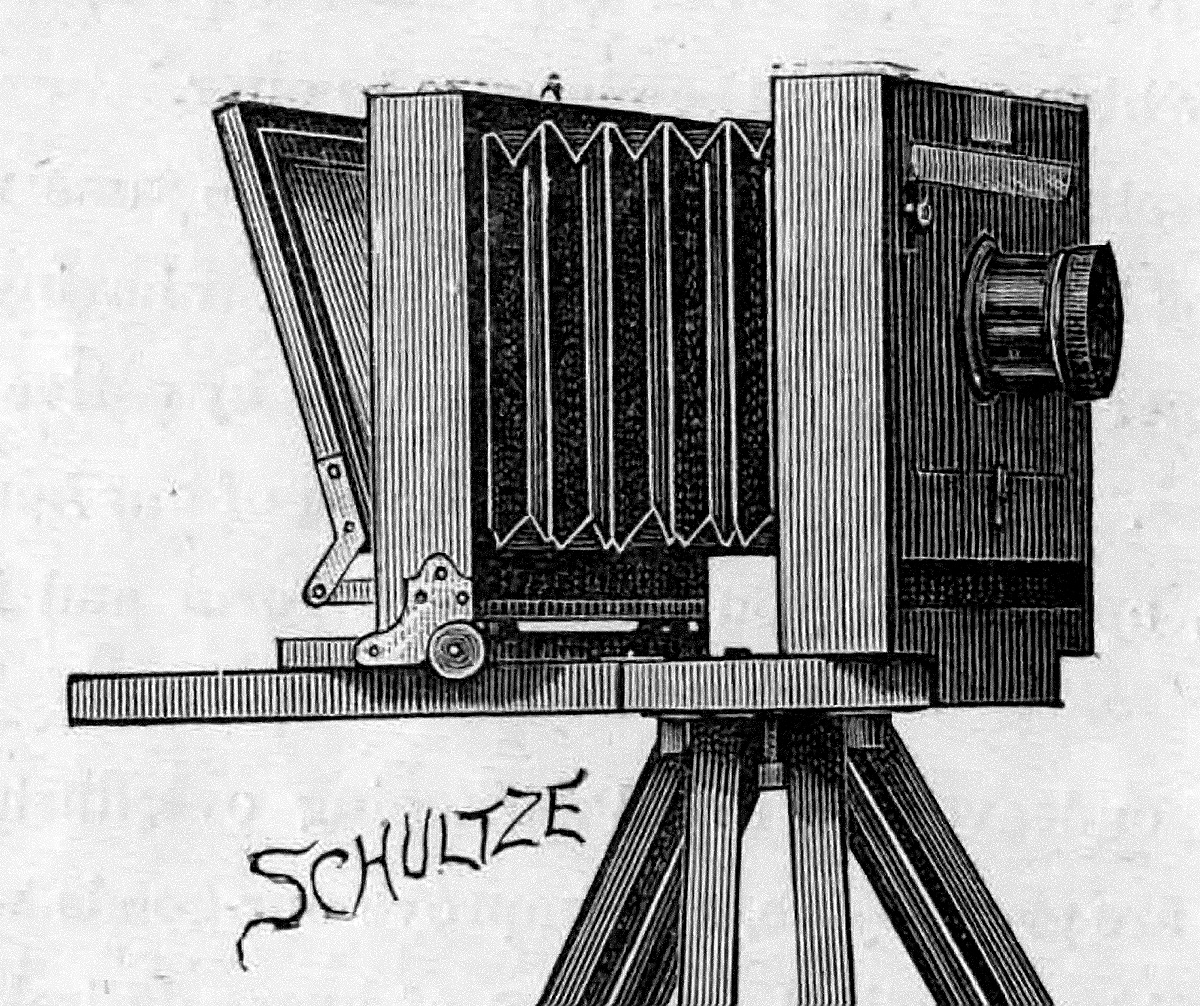
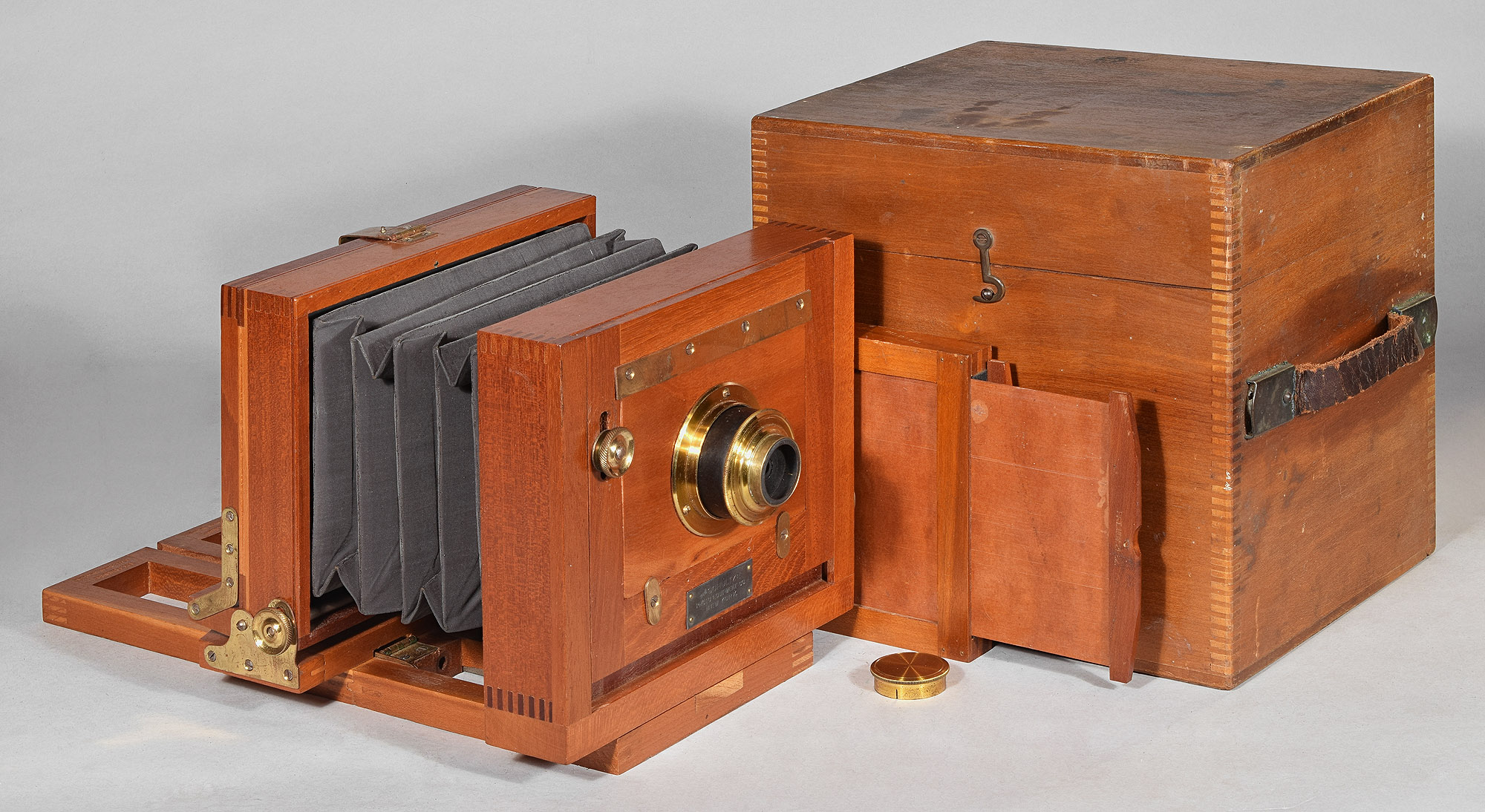
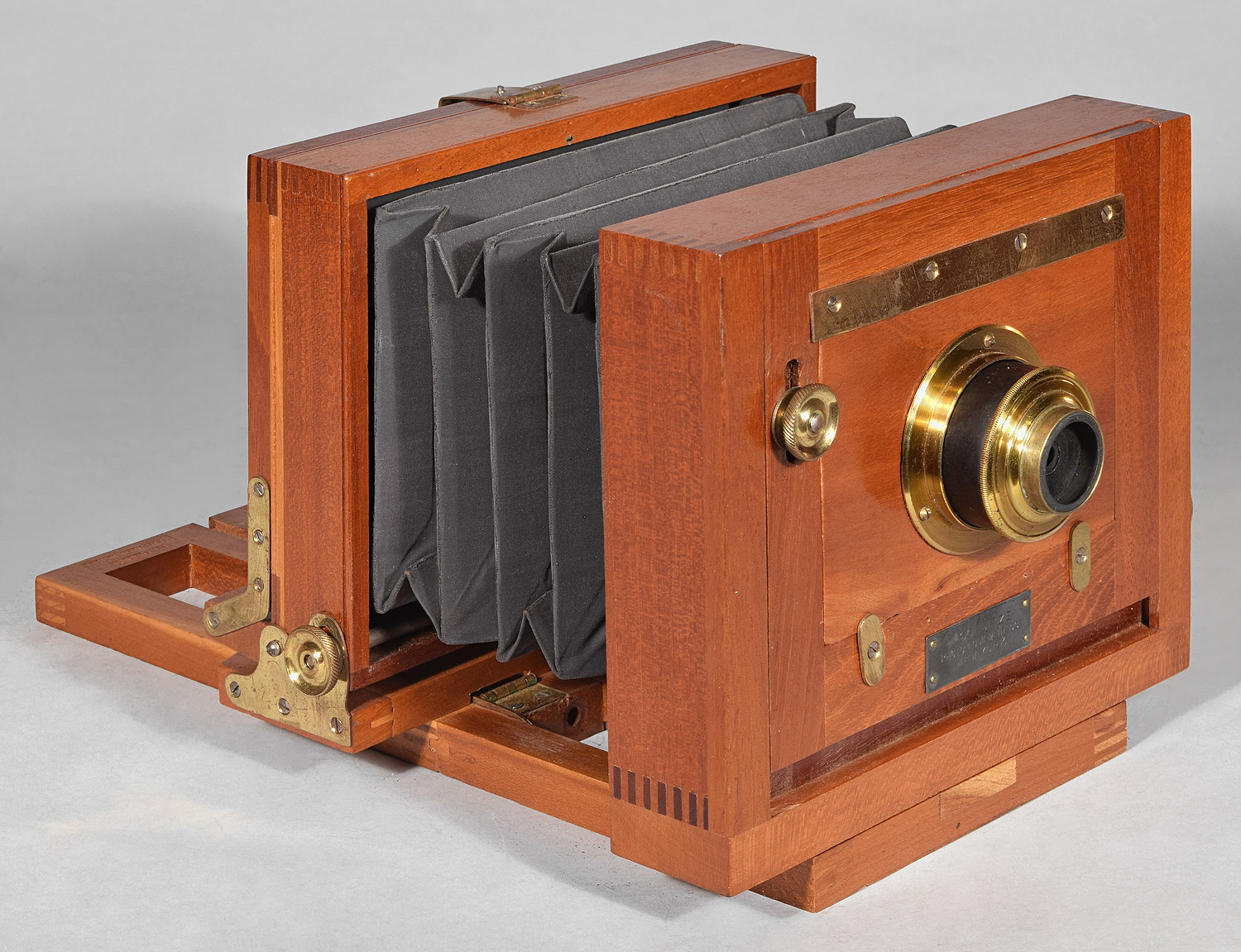
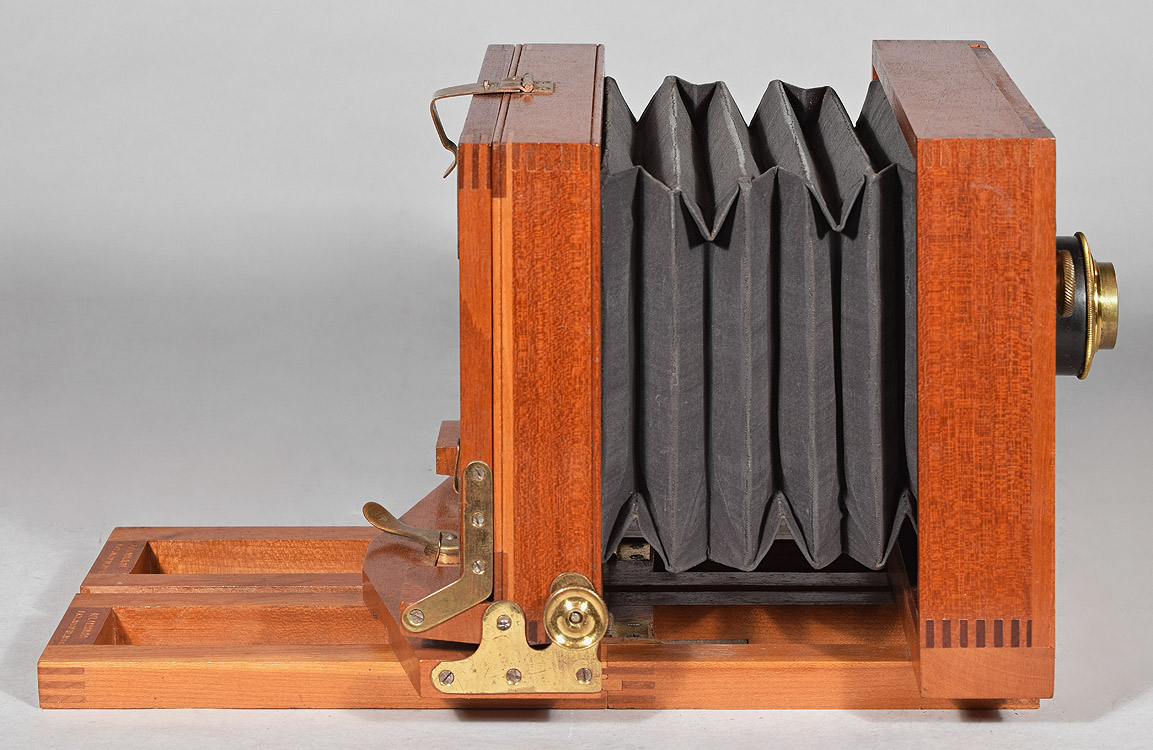
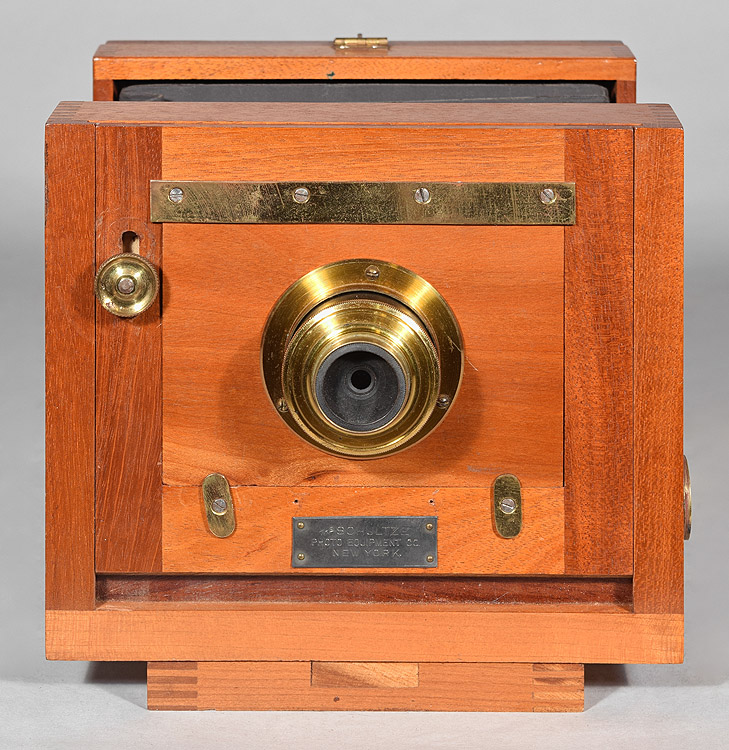
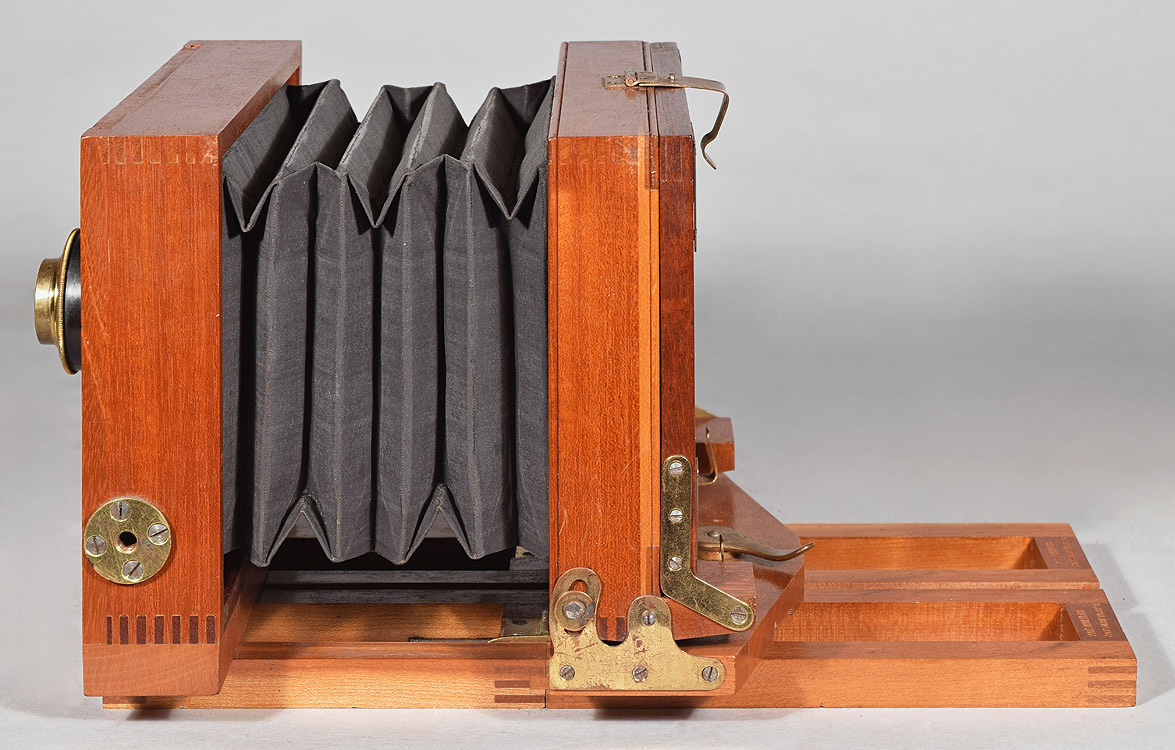
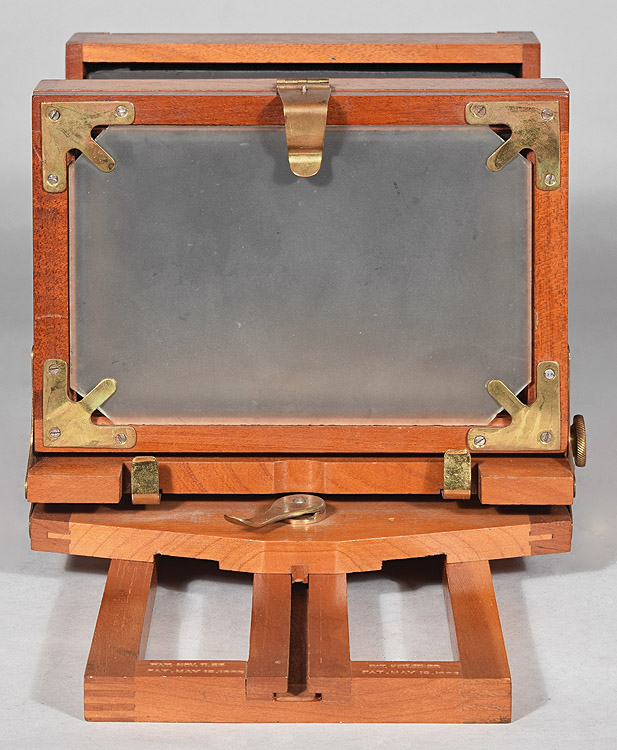
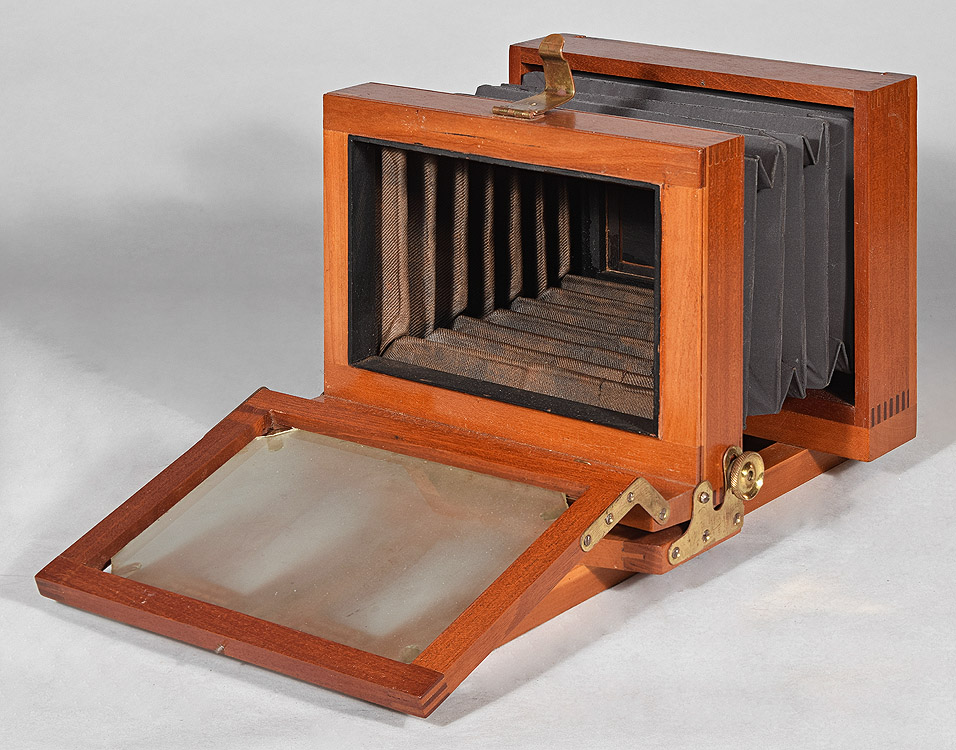
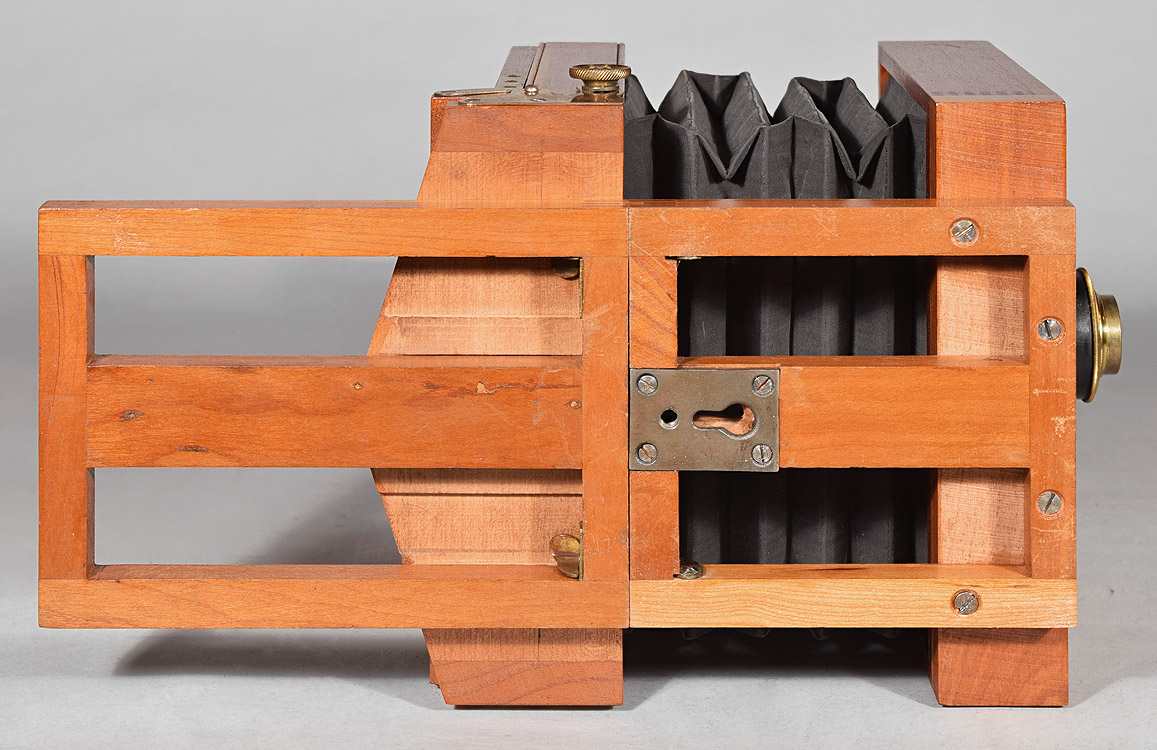

Nov. 11, 1884 (clamp hooks for making the bed rigid)
May 18, 1886 (focusing attachment)
Feb. 20, 1888

Construction: back focus
via push-pull; single swing; reversing by means of a second
tripod mount; plywood lens board
Materials: mahogany wood body; cherry base;
black fabric bellows; brass hardware
Sizes Offered: 4½x6½"
Notes:
No references under the Schultze name; see
N.P.A.
Camera Variation 2 for Anthony references.
